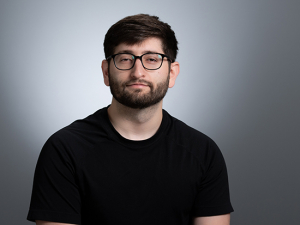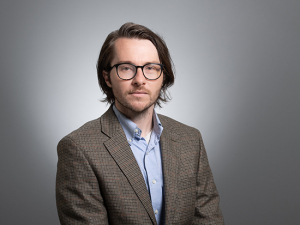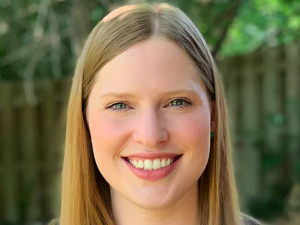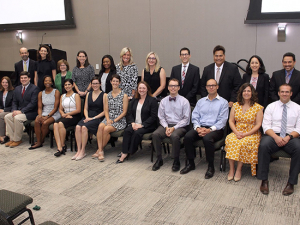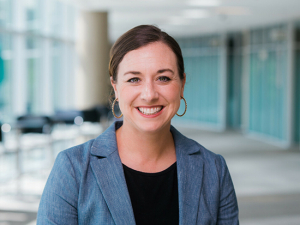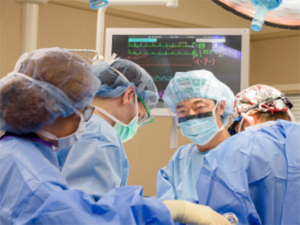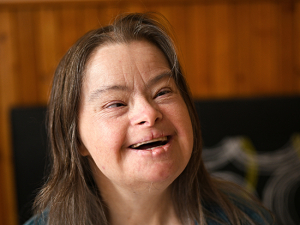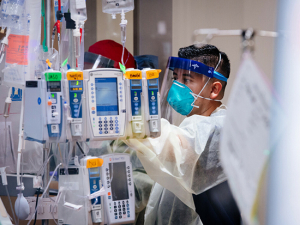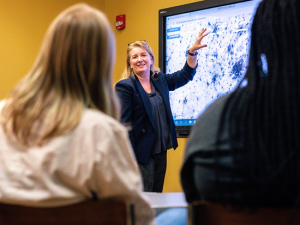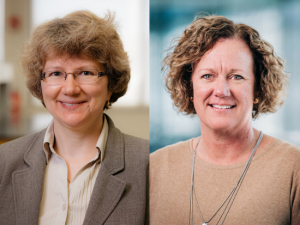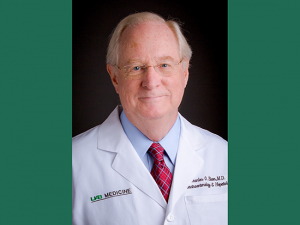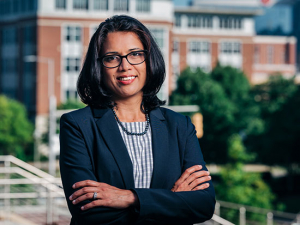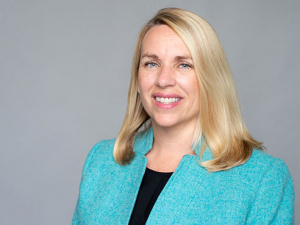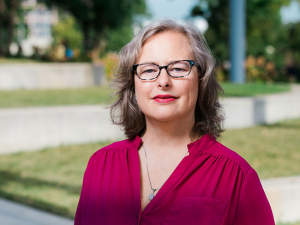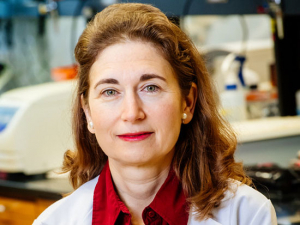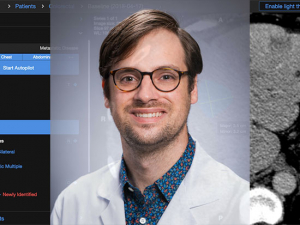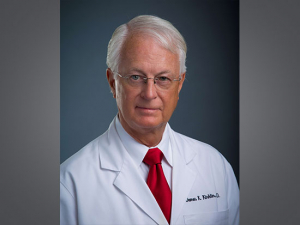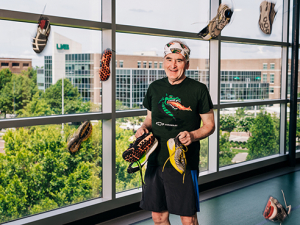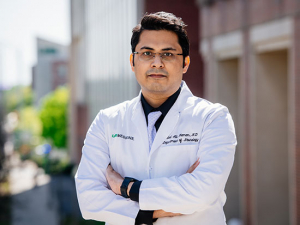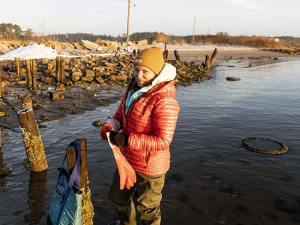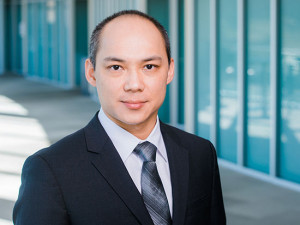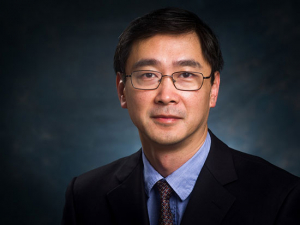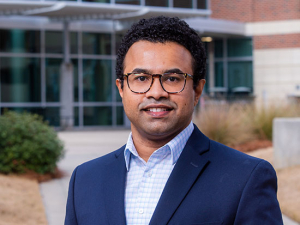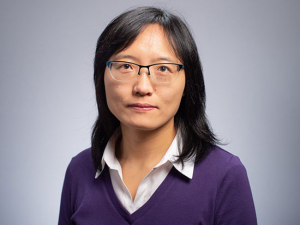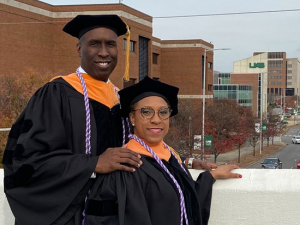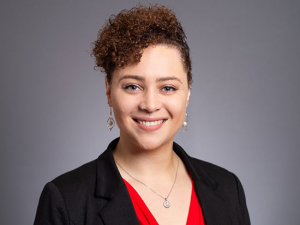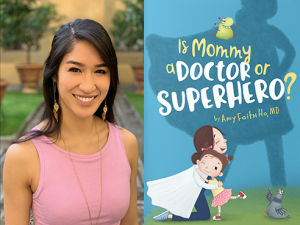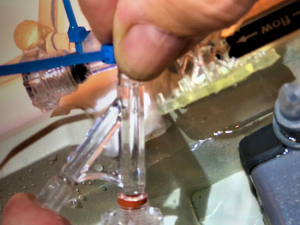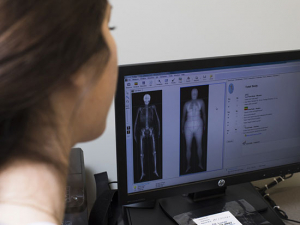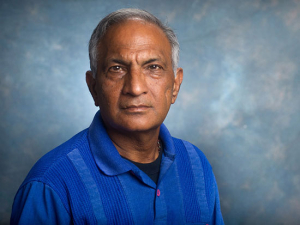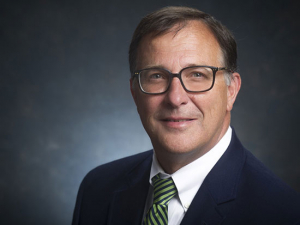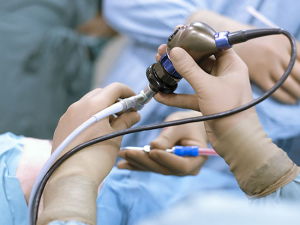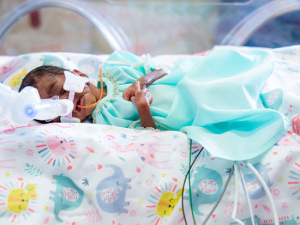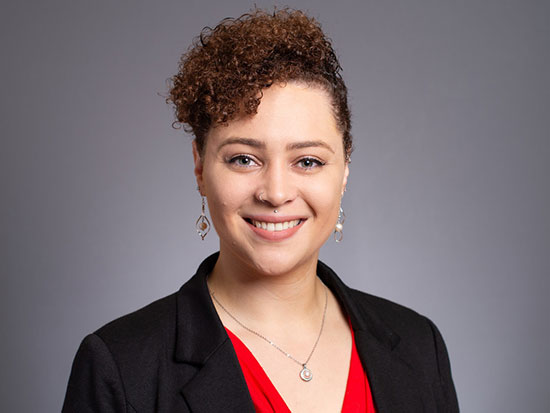 After moving from California to Alabama, Claire Auriemma "got a fresh start in research administration." This semester, she completed master's degrees in public health and business administration. "I was too close to the finish line to even consider stopping," she said.Graduation is a notable accomplishment at any time. Completing your studies in the midst of a pandemic is an achievement — especially when you are working full-time.
After moving from California to Alabama, Claire Auriemma "got a fresh start in research administration." This semester, she completed master's degrees in public health and business administration. "I was too close to the finish line to even consider stopping," she said.Graduation is a notable accomplishment at any time. Completing your studies in the midst of a pandemic is an achievement — especially when you are working full-time.
Each year, some 2,700 UAB employees and their dependents use the university’s educational assistance benefit. This month, dozens of employees will complete their degrees or certificates and participate in commencement. Some are preparing for new careers or adding skills to help them in their current jobs; others are simply exploring long-held interests.
The Reporter spoke with three employees who shared their educational journeys and motivations to continue learning during a pandemic.
Claire Auriemma, a program coordinator in the Department of Nutrition Sciences, completed master’s degrees in public health and business administration this semester. “Until I gained employment at UAB, I was completely unaware of the world of public health,” she said. Her undergraduate degree was in communications, “but after moving from California to Alabama, I got a fresh career start in research administration at UAB,” Auriemma said. “A faculty member who I worked with — Dr. James Willig — saw my potential and inspired me to invest in myself and my career while still in my twenties.”
Public health “encompasses many issues that I was already passionate about, such as homelessness, food deserts, racial equity and mental health promotion, so it was a natural fit for me,” Auriemma said. “While exploring different program options, I saw that the Collat School of Business had partnered with several other schools to offer dual-degree programs, making it easier to get an MBA at the same time. The reality is that I still don’t know what I want to be ‘when I grow up,’ so I decided that by obtaining both an MBA and an MPH with a concentration in health care organization and policy, I would gain the knowledge and skills to be flexible in my career path and be able to make a difference.”
Christy Peters, an alumni affairs specialist in the School of Engineering, completed a certificate in nonprofit management this semester and is working to earn a master’s degree in public administration in spring 2021. “It’s really helpful to have this knowledge in my current role, as I’m working with engaging alumni to get more involved with UAB,” Peters said. “It is also helpful going forward in my career as I want to progress in development. I was getting my MPA and realized I could tackle the certificate, too, which gives me more credibility in my field.”
| Considering taking a class — or getting a new degree? Read these 10 FAQs about educational assistance at UAB. |
Nicole Kocher, an office associate in the Department of Pathology Division of Laboratory Medicine, earned a certificate in leadership and professional development in fall. “I originally began exploring opportunities for leadership development back in the 2018-19 academic year,” she said. “While attending a leadership conference at UAB, I was informed of the new certificate in leadership and professional development [in The Graduate School] and promptly joined.” As she was working through the program, The Graduate School launched a new master’s program in interdisciplinary graduate studies. “I will be using this certificate as well as a certificate in public health to complete my studies in August 2021,” Kocher said. “I was motivated by my desire to continue to better myself and to prepare for future roles as a clinical provider.”
What was it like finishing in the midst of the COVID pandemic?
Auriemma: “Once we were sent home because of COVID-19, I was too close to the finish line to even consider stopping. Thankfully, I was able to continue working from home, and I was already used to taking most of my classes online, so it did not cause a major interruption for me. Balancing work and school both at home has been difficult, as well as coping with the uncertainty, chaos and devastation that have been ever-present in 2020. I felt like I had something to prove to myself and the world, and now I’m proud of completing two master’s degrees in spite of the odds.
| "Honestly, I knew finishing my degree would be difficult, but I wanted to show my son when you start something you finish it. It may take you a little longer, but you work hard and do your best." |
“Pre-pandemic, there was a period of time when I wanted to quit every single day. Working full-time, taking graduate classes and managing chronic illnesses is frustrating and exhausting. But I knew that this was an investment, and with all the blood, sweat and tears that I had already given, I needed a good return on my investment. So I pushed on for the knowledge, the career opportunities, the achievement of being a first-generation college graduate and the second member of my immediate family to get a master’s degree, and sometimes out of sheer stubbornness.”
Kocher: “Changes in academic course lectures and presentations over to the online model due to COVID-19 significantly helped me to have the time to complete my studies. I am now able to use my lunch break to join a course instead of clocking out to compensate for travel times.”
Peters: “It has been trying but also helpful because I haven’t had to be away from my husband or son while trying to finish up my courses. Honestly, I knew finishing my degree would be difficult, but I wanted to show my son when you start something you finish it. It may take you a little longer, but you work hard and do your best.”
Did you have any particular favorite classes or memorable teachers you met through this degree?
Peters: “Every professor I’ve had has been so helpful and kind. They push us to excel but also understand most of their students are working full-time and may also have families. I started working toward my MPA in spring 2019. My professors were very understanding as I got married three weeks into my degree pursuit, and the next year had my first child. Before the pandemic hit, Dr. [Peter] Jones was kind enough to work with me on how to successfully finish his course in spring 2020 while being a new mom and unable to attend in person. All of my professors have been quick to respond and make the time to meet with me about any questions or issues I may have regarding a course and coursework.”
| "Even though I did not have a typical graduate school experience, I was involved in student leadership and found community in the Black Graduate Student Association." |
Auriemma: “One of my favorite classes is one I took this semester, Social and Ethical Issues in Public Health, taught by Dr. [Janet] Bronstein and Dr. [Matthew] Fifolt. The content is so timely for our current environment, and it has helped me to identify some of my biases and develop a framework for evaluating controversial topics in public discourse. Exploring Population Health in the Deep South, a field study course led by Dr. [Lisa] McCormick and Meena Nabavi, was an incredible experience that brought concepts from the classroom to life. I got to see many examples of public health application and gain awareness of specific issues affecting the Southeast. Dr. [Eric] Ford is another favorite professor – he taught Health Care Innovation and also was my internship advisor.”
Kocher: “My professors were extremely accommodating and caring throughout the program; especially Dr. Lisa Kerr. Her support and guidance helped everyone push a little further. My favorite courses were two of the foundational courses: Team Development and Dynamics as well as Introduction to Leadership Behaviors. I developed my personal leadership theory, became more familiar with my strengths and how to utilize them, as well as new-team development and conflict-management skills.”
Is there anything else you would like to add?
Kocher: “Throughout my coursework in completion of this certificate, I was introduced to as well as given the opportunity to practice theories and skills for both my personal and professional development. I would highly recommend it for other employees who seek to improve their professionalism and team dynamics, to discuss and incorporate workplace ethics into their own professional leadership plan and to participate in personal growth.”
| "Changes in academic course lectures and presentations over to the online model due to COVID-19 significantly helped me to have the time to complete my studies. I am now able to use my lunch break to join a course instead of clocking out to compensate for travel times." |
Auriemma: “Truly, I would not have made it without my support system. Disability Support Services was instrumental in helping me get reasonable accommodations for my classes so that my invisible disabilities (chronic illnesses) would not prevent me from succeeding in graduate school. Even though I did not have a typical graduate school experience, I was involved in student leadership and found community in the Black Graduate Student Association. My spouse, Matthew, is the real MVP though. [Matthew Auriemma is an informatics analyst in the School of Medicine’s Informatics Institute.] He has been more supportive than I could have imagined as we went through the biggest challenges of our lives (thus far) during the past few years. And finally, I know that God has been sustaining me throughout this process. He gave me a desire to help others, a passion for public health and the strength to do all of my work with excellence, to glorify Him.”
Peters: “The MPA program at UAB is an excellent route for anyone wanting to be involved in nonprofits, development or government. The courses are tough, but they also prepare you for what you will be doing in the profession you choose. I’ve learned so much in a short amount of time. I’m not only going to have an MPA but also now have my nonprofit management certificate — and there aren’t many places you can do that.”
